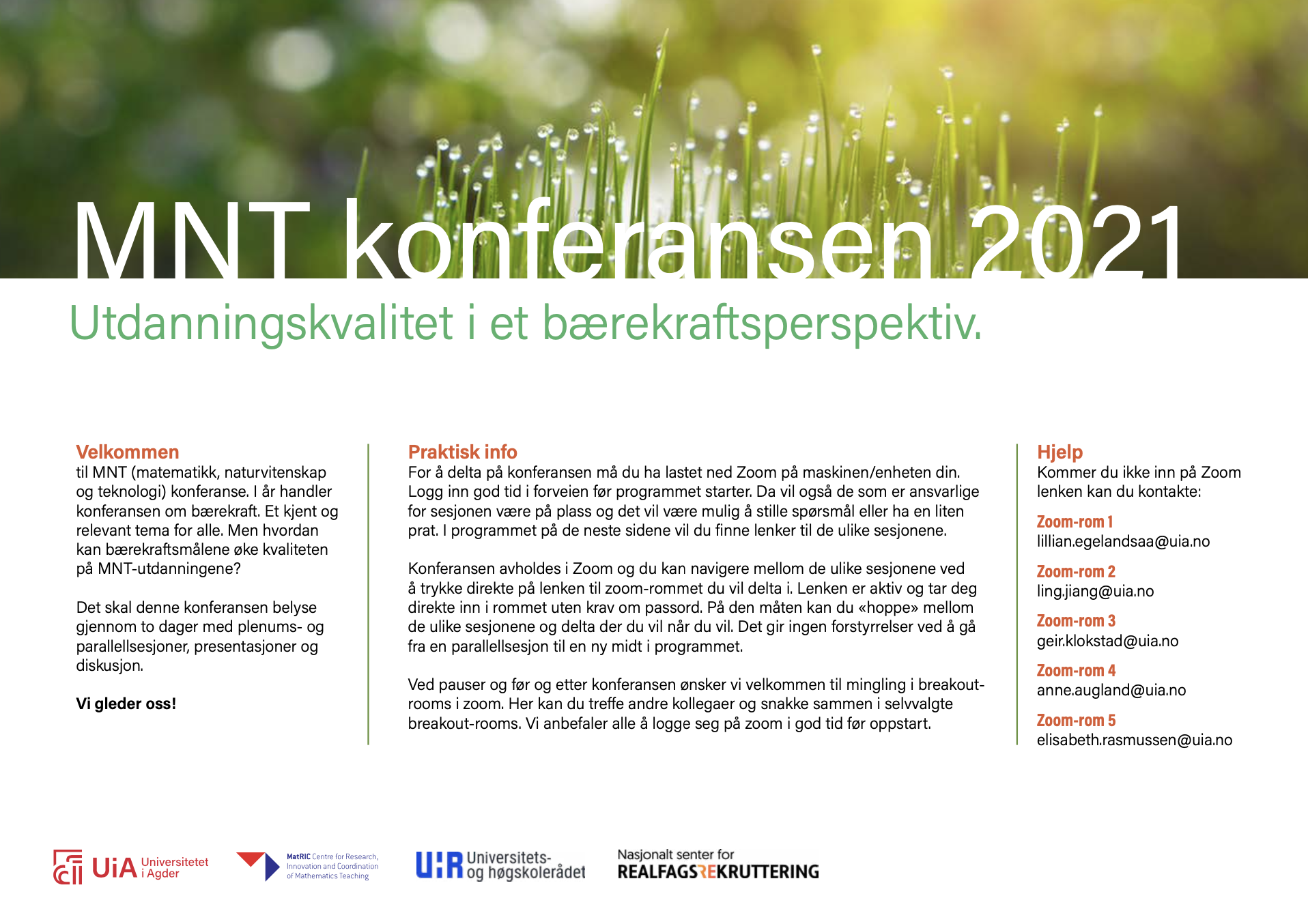The Impact of a Mathematics Bridging Intervention on the Inclusivity of a University Economics Programme
DOI:
https://doi.org/10.5324/njsteme.v5i1.3904Abstract
The inclusivity of all students in the University Economics programme is in danger due to a high failure rate in the first-year mathematics course. This study investigates whether participation in a bridging course, and what aspects of it, can contribute to equal opportunities and increased inclusivity in the Mathematics for Economists course, and henceforth reduce the failure rate. It adds to the meager European literature on remedial course effectiveness. Through the use of ordinary least square regression analyses, a significant positive effect of participation in the bridging course was found for the student group as a whole. Furthermore, the results indicated that participation was particularly valuable for the least mathematically prepared students.
Nedladdningar
##submission.downloads##
Publicerad
Referera så här
Nummer
Sektion
Licens
Copyright (c) 2021 Ida Maria Landgärds

Det här verket är licensierat under en Creative Commons Erkännande 4.0 Internationell-licens.
The Nordic Journal of STEM Education licenses all content of the journal under a Creative Commons Attribution (CC-BY) licence. This means, among other things, that anyone is free to copy and distribute the content, as long as they give proper credit to the author(s) and the journal. For further information, see Creative Commons website for human readable or lawyer readable versions.
Authors who publish with this journal agree to the following terms:
1. Authors retain copyright and grant the journal right of first publication with the work simultaneously licensed under a Creative Commons Attribution License that allows others to share the work with an acknowledgement of the work's authorship and initial publication in this journal.
2. Authors are able to enter into separate, additional contractual arrangements for the non-exclusive distribution of the journal's published version of the work (e.g., post it to an institutional repository or publish it in a book), with an acknowledgement of its initial publication in this journal.
3. Authors are permitted and encouraged to post their work online (e.g., in institutional repositories or on their website) prior to and during the submission process, as it can lead to productive exchanges, as well as earlier and greater citation of published work (See The Effect of Open Access

